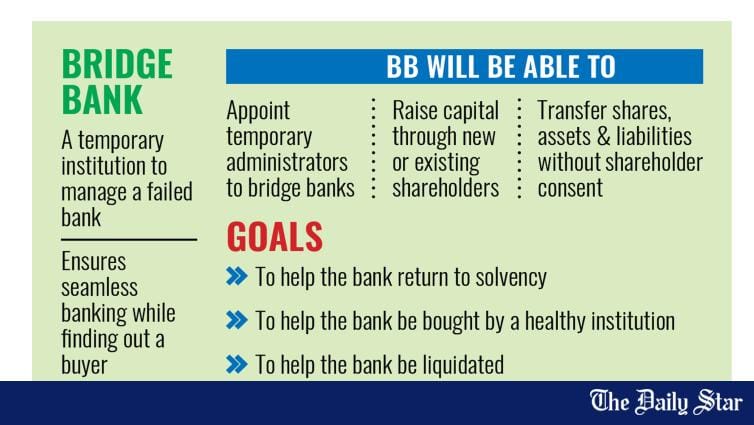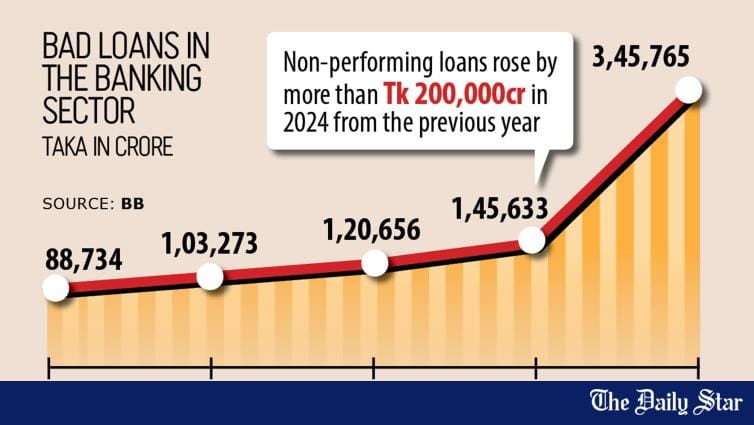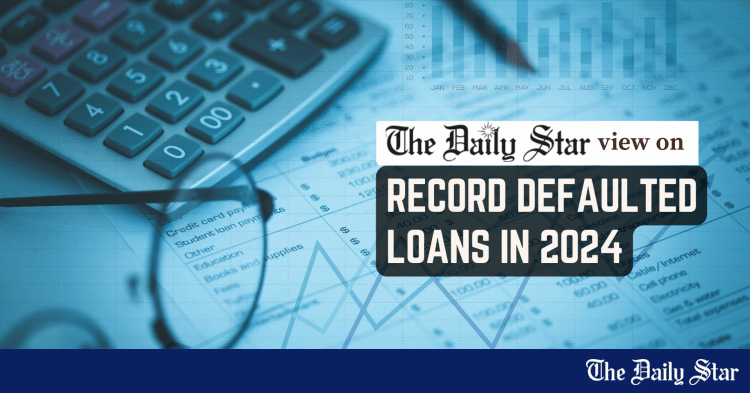- Copy to clipboard
- Thread starter
- #121
Saif
Senior Member
- Joined
- Jan 24, 2024
- Messages
- 15,397
- Reaction score
- 7,865
- Points
- 209
- Nation

- Residence

- Axis Group


ACC seeks responsibilities to investigate reserve heist case
Hackers stole USD 81 million from the Bangladesh Bank reserve during the tenure of the Bangladesh Awami League government. The Criminal Investigation Department (CID) of the police could not complete their investigation in the lawsuit that was filed with Motijheel police station in the city...
ACC seeks responsibilities to investigate reserve heist case
Nurul Amin
Dhaka
Published: 22 Jan 2025, 21: 09

Bangladesh Bank Collected
Hackers stole USD 81 million from the Bangladesh Bank reserve during the tenure of the Bangladesh Awami League government.
The Criminal Investigation Department (CID) of the police could not complete their investigation in the lawsuit that was filed with Motijheel police station in the city even after nine years.
Now the Anti-Corruption Commission (ACC) wants to investigate the case.
CID has already found involvement of 14 people including former central bank governor Atiur Rahman in the reserve heist incident. The immigration police have already placed an embargo on their travelling abroad.
Wishing not to be named, an ACC official told Prothom Alo that the crime of reserve heist incident falls within the jurisdiction of ACC. The former government of Sheikh Hasina filed a fabricated case with the intention to conceal the incident and gave CID charge to investigate that.
The case was filed with Motijheel police station after 39 days of the incident under three sections including theft.
The official further said the heist mainly took place through hacking but the lawsuit was filed under theft sections. Though there are sections related to hacking, the case was filed in such a way so that the accused could get released even after submitting the charge sheet.
ACC sources said a letter was sent on 31 December 2024 to the CID seeking responsibilities of the investigation. CID received the letter on 2 January but has not yet made any reply.
Of the people barred from travelling abroad, 10 could be identified. They are - former governor of Bangladesh Bank Atiur Rahman, former director of Summit Alliance Port and Institute of Bankers Bangladesh Anisuddin Ahmed Khan lias Anis A Khan, former maintenance engineer of Bangladesh Bank Dipankar Kumar Chowdhury, former deputy general manager SM Rezaul Karim, former executive director Suvongkor Saha, plaintiff Zubayer Bin Huda, former deputy director (SWIFT operator) GM Abdullah Salehin, assistant director Sheikh Riaz Uddin, officer Eklas Uddin and incumbent executive director Mezbaul Haque.
Sources involved with the investigation said Atiur Rahman has left the country even before the court pronounced the order barring him from travelling abroad but the others are staying in the country.
The ACC letter, sent to the CID seeking the case dockets, evidence and other records and documents, requested to handover the case to the anti-graft body.
It said as per section 21 of the CrPC, this investigation falls under the jurisdiction of the ACC as all the people, including the former governor of Bangladesh Bank, involved with the incident are, according to the corruption prevention act and bank company act, public servants.
No CID official, involved with the investigation, however, agreed to comment on the case.
Asked about the letter, ACC director general Akhtar Hossain told Prothom Alo that he did not know this. He could inform this later after inquiring.
On the night of 4 February, 2016, 81 million US dollars were stolen from the reserves of Bangladesh Bank. The criminals resorted to fraud using the SWIFT payment system and withdrew the huge amount of money from the reserves of Bangladesh Bank kept at the Federal Reserve Bank of New York in the United States.
This money went to four accounts at the Rizal Bank branch in Makati City, Philippines, and the money was quickly withdrawn from there. Of the amount, 34 per cent of the money has been recovered. The rest is still deposited in a bank in the Philippines. Bangladesh Bank has filed a case against the Philippine bank in a US court. If the case is won, the rest of the money will be recovered.
Investigation sources said hackers were able to withdraw money from reserve due to negligence in security of SWIFT system. Bangladesh Bank's forex reserve SWIFT (Society for Worldwide Inter Bank Financial Telecommunication) server is a sensitive system. Despite that, then governor approved the connection of Real Time Grace Settlement (RTGS) through the SWIFT and ensured its implementation. The investigators identified this as a criminal move. RTGS is a specialised fund transfer system, through which funds can be transferred from one bank to another instantly.
The investigation also revealed that the then deputy governor-4 Abdul Kashem was against providing RTGS service through SWIFT. As a result, Atiur Rahman himself signed the file for providing RTGS service. Some officials of Bangladesh Bank connived with hackers for pecuniary benefits, though they didn’t get their share after the matter came to light.
Asked, former inspector general of police (IGP) Nurul Huda told Prothom Alo that attorney general should be consulted before transferring the case. The attorney general, who is the top legal officer of the state, can make the right decision considering the fact that if the investigation was done correctly.
Nurul Amin
Dhaka
Published: 22 Jan 2025, 21: 09
Bangladesh Bank Collected
Hackers stole USD 81 million from the Bangladesh Bank reserve during the tenure of the Bangladesh Awami League government.
The Criminal Investigation Department (CID) of the police could not complete their investigation in the lawsuit that was filed with Motijheel police station in the city even after nine years.
Now the Anti-Corruption Commission (ACC) wants to investigate the case.
CID has already found involvement of 14 people including former central bank governor Atiur Rahman in the reserve heist incident. The immigration police have already placed an embargo on their travelling abroad.
Wishing not to be named, an ACC official told Prothom Alo that the crime of reserve heist incident falls within the jurisdiction of ACC. The former government of Sheikh Hasina filed a fabricated case with the intention to conceal the incident and gave CID charge to investigate that.
The case was filed with Motijheel police station after 39 days of the incident under three sections including theft.
The official further said the heist mainly took place through hacking but the lawsuit was filed under theft sections. Though there are sections related to hacking, the case was filed in such a way so that the accused could get released even after submitting the charge sheet.
ACC sources said a letter was sent on 31 December 2024 to the CID seeking responsibilities of the investigation. CID received the letter on 2 January but has not yet made any reply.
Of the people barred from travelling abroad, 10 could be identified. They are - former governor of Bangladesh Bank Atiur Rahman, former director of Summit Alliance Port and Institute of Bankers Bangladesh Anisuddin Ahmed Khan lias Anis A Khan, former maintenance engineer of Bangladesh Bank Dipankar Kumar Chowdhury, former deputy general manager SM Rezaul Karim, former executive director Suvongkor Saha, plaintiff Zubayer Bin Huda, former deputy director (SWIFT operator) GM Abdullah Salehin, assistant director Sheikh Riaz Uddin, officer Eklas Uddin and incumbent executive director Mezbaul Haque.
Sources involved with the investigation said Atiur Rahman has left the country even before the court pronounced the order barring him from travelling abroad but the others are staying in the country.
The ACC letter, sent to the CID seeking the case dockets, evidence and other records and documents, requested to handover the case to the anti-graft body.
It said as per section 21 of the CrPC, this investigation falls under the jurisdiction of the ACC as all the people, including the former governor of Bangladesh Bank, involved with the incident are, according to the corruption prevention act and bank company act, public servants.
No CID official, involved with the investigation, however, agreed to comment on the case.
Asked about the letter, ACC director general Akhtar Hossain told Prothom Alo that he did not know this. He could inform this later after inquiring.
On the night of 4 February, 2016, 81 million US dollars were stolen from the reserves of Bangladesh Bank. The criminals resorted to fraud using the SWIFT payment system and withdrew the huge amount of money from the reserves of Bangladesh Bank kept at the Federal Reserve Bank of New York in the United States.
This money went to four accounts at the Rizal Bank branch in Makati City, Philippines, and the money was quickly withdrawn from there. Of the amount, 34 per cent of the money has been recovered. The rest is still deposited in a bank in the Philippines. Bangladesh Bank has filed a case against the Philippine bank in a US court. If the case is won, the rest of the money will be recovered.
Investigation sources said hackers were able to withdraw money from reserve due to negligence in security of SWIFT system. Bangladesh Bank's forex reserve SWIFT (Society for Worldwide Inter Bank Financial Telecommunication) server is a sensitive system. Despite that, then governor approved the connection of Real Time Grace Settlement (RTGS) through the SWIFT and ensured its implementation. The investigators identified this as a criminal move. RTGS is a specialised fund transfer system, through which funds can be transferred from one bank to another instantly.
The investigation also revealed that the then deputy governor-4 Abdul Kashem was against providing RTGS service through SWIFT. As a result, Atiur Rahman himself signed the file for providing RTGS service. Some officials of Bangladesh Bank connived with hackers for pecuniary benefits, though they didn’t get their share after the matter came to light.
Asked, former inspector general of police (IGP) Nurul Huda told Prothom Alo that attorney general should be consulted before transferring the case. The attorney general, who is the top legal officer of the state, can make the right decision considering the fact that if the investigation was done correctly.



















